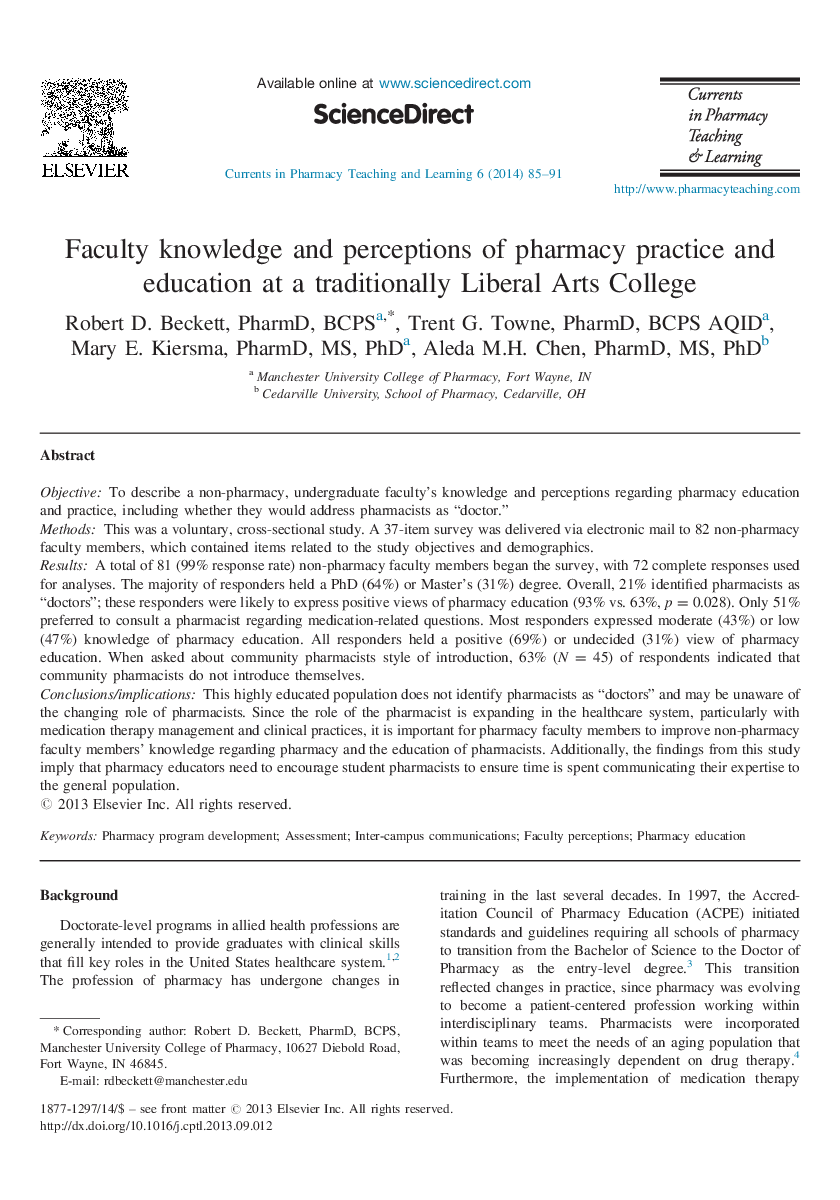| Article ID | Journal | Published Year | Pages | File Type |
|---|---|---|---|---|
| 353215 | Currents in Pharmacy Teaching and Learning | 2014 | 7 Pages |
ObjectiveTo describe a non-pharmacy, undergraduate faculty’s knowledge and perceptions regarding pharmacy education and practice, including whether they would address pharmacists as “doctor.”MethodsThis was a voluntary, cross-sectional study. A 37-item survey was delivered via electronic mail to 82 non-pharmacy faculty members, which contained items related to the study objectives and demographics.ResultsA total of 81 (99% response rate) non-pharmacy faculty members began the survey, with 72 complete responses used for analyses. The majority of responders held a PhD (64%) or Master’s (31%) degree. Overall, 21% identified pharmacists as “doctors”; these responders were likely to express positive views of pharmacy education (93% vs. 63%, p = 0.028). Only 51% preferred to consult a pharmacist regarding medication-related questions. Most responders expressed moderate (43%) or low (47%) knowledge of pharmacy education. All responders held a positive (69%) or undecided (31%) view of pharmacy education. When asked about community pharmacists style of introduction, 63% (N = 45) of respondents indicated that community pharmacists do not introduce themselves.Conclusions/implicationsThis highly educated population does not identify pharmacists as “doctors” and may be unaware of the changing role of pharmacists. Since the role of the pharmacist is expanding in the healthcare system, particularly with medication therapy management and clinical practices, it is important for pharmacy faculty members to improve non-pharmacy faculty members’ knowledge regarding pharmacy and the education of pharmacists. Additionally, the findings from this study imply that pharmacy educators need to encourage student pharmacists to ensure time is spent communicating their expertise to the general population.
